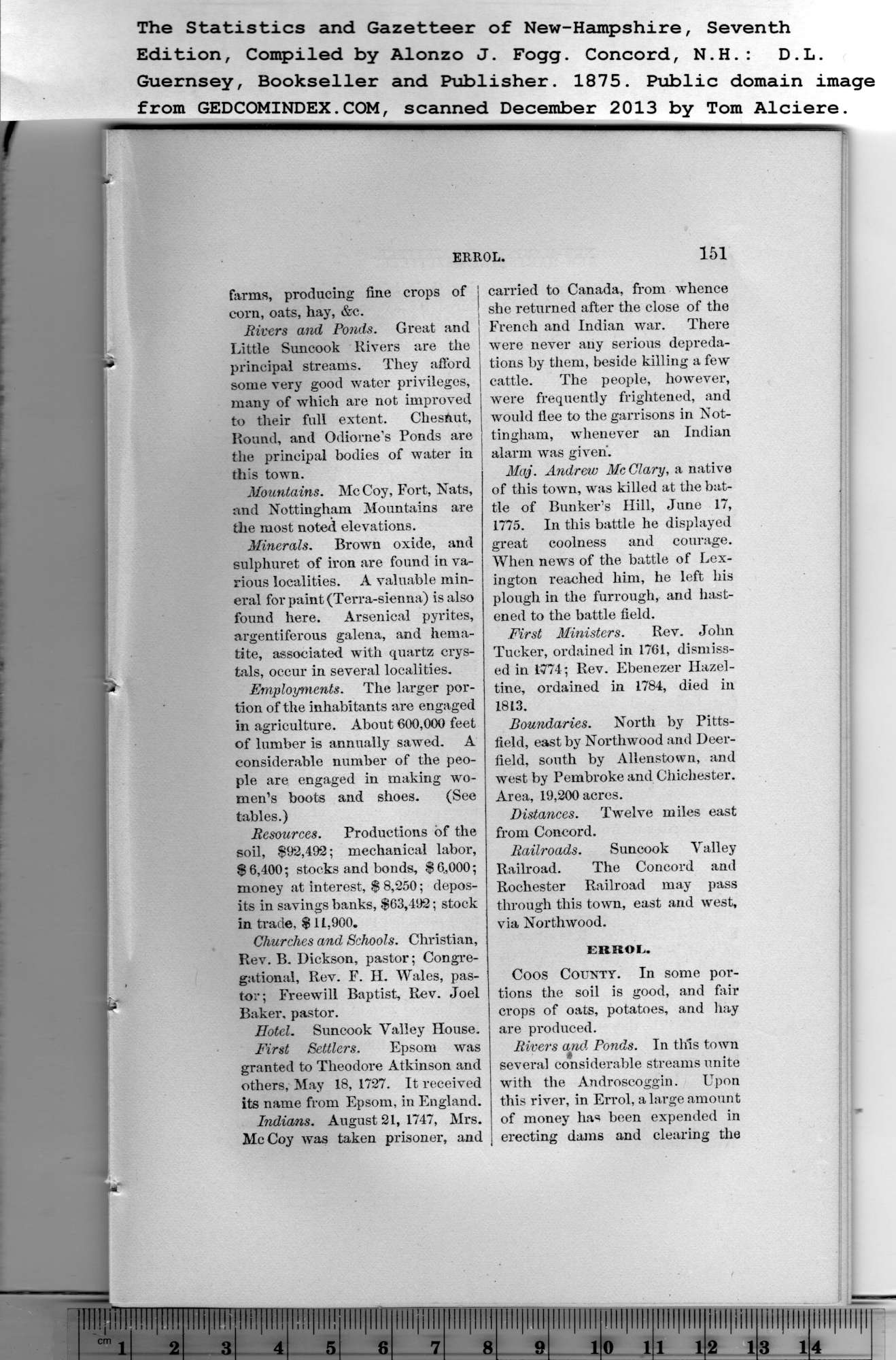|
farms, producing fine crops of j
corn, oats, hay, &c. J
jRivers and Ponds. Great and
Little Suncook Rivers are the
principal streams. They afford
some very good water privileges,
many of which are not improved
to their full extent. Chesnut,
Round, and Odiorne’s Ponds are
the principal bodies of water in
this town.
Mountains. McCoy, Fort, Nats,
and Nottingham Mountains are
the most noted elevations.
Minerals. Brown oxide, and
sulphuret of iron are found in va-
rious localities. A valuable min-
eral for paint (Terra-sienna) is also
found here. Arsenical pyrites,
argentiferous galena, and hema-
tite, associated with quartz crys-
tals, occur in several localities.
Employments. The larger por-
tion of the inhabitants are engaged
in agriculture. About 600,000 feet
of lumber is annually sawed. A
considerable number of the peo-
ple are engaged in making wo-
men’s boots and shoes. (See
tables.)
Resources. Productions of the
soil, $92,492; mechanical labor,
$6,400; stocks and bonds, $6,000;
money at interest, $ 8,250; depos-
its in savings banks, $63,492; stock
in trade, $ 11,900.
Churches and Schools. Christian,
Rev. B. Dickson, pastor; Congre-
gational, Rev. F. H. Wales, pas-
tor; Freewill Baptist, Rev. Joel
Baker, pastor.
Hotel. Suncook Valley House.
First Settlers. Epsom was
granted to Theodore Atkinson and
others, May 18, 1727. It received
its name from Epsom, in England.
Indians. August 21, 1747, Mrs.
McCoy was taken prisoner, and |
carried to Canada, from whence
she returned after the close of the
French and Indian war. There
were never any serious depreda-
tions by them, beside killing a few
cattle. The people, however,
were frequently frightened, and
would flee to the garrisons in Not-
tingham, whenever an Indian
alarm was given.
Maj. Andrew Me Clary, a native
of this town, was killed at the bat-
tle of Banker’s Hill, June 17,
1775. In this battle he displayed
great coolness and courage.
When news of the battle of Lex-
ington reached him, he left his
plough in the furrough, and hast-
ened to the battle field.
First Ministers. Rev. John
Tucker, ordained in 1761, dismiss-
ed in 1774; Rev. Ebenezer Hazel-
tine, ordained in 1784, died in
1813.
Boundaries. North by Pitts-
field, east by North wood and Deer-
field, south by Allenstown, and
west by Pembroke and Chichester.
Area, 19,200 acres.
Distances. Twelve miles east
from Concord.
Railroads. Suncook V alley
Railroad. The Concord and
Rochester Railroad may pass
through this town, east and west,
via Northwood.
ERROL.
Coos County. In some por-
tions the soil is good, and fair
crops of oats, potatoes, and hay
are produced.
Rivers and Ponds. In this town
several considerable streams unite
with the Androscoggin. Upon
this river, in Errol, a large amount
of money has been expended in
erecting dams and clearing the |
